Before committing to a venue, it is important to ask the right questions so that your special day runs as smoothly as possible and that there are no nasty surprises that may affect your day.
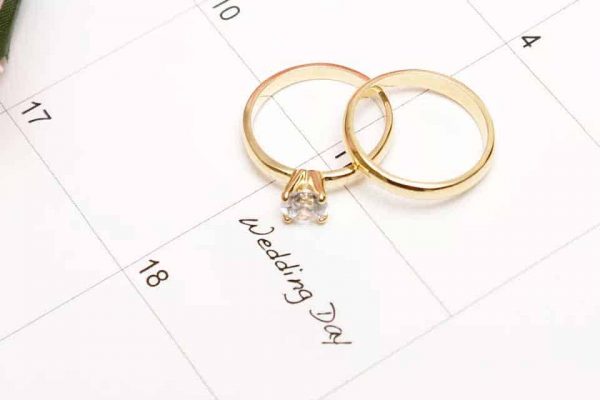
One of the first questions you should ask before moving forward with your booking is whether your chosen venue(s) have the availability to host you and your guests on your chosen wedding day. We highly recommend you start contacting your venue as soon as possible so that other couples don't book the same date. Some high-demand venues sometimes have bookings two to three years in advance. The sooner you make contact, the more likely you are to get your dream venue on the dates you choose. Being prepared = less compromise.
When planning your wedding, booking your venue is the first thing you should do. You can then plan everything else around the dates you have in place.
Naturally, you will want all attention to be on you and your guests on this special day. So when booking, ask whether all staff and facilities can be ‘Exclusively Hired’ for the day so you and your guests are pampered to your delight. Some venues will try to fit multiple weddings into one day and sometimes allow non-wedding go-ers into the grounds, so it is important to make sure that you are the centre of attention on your special day.
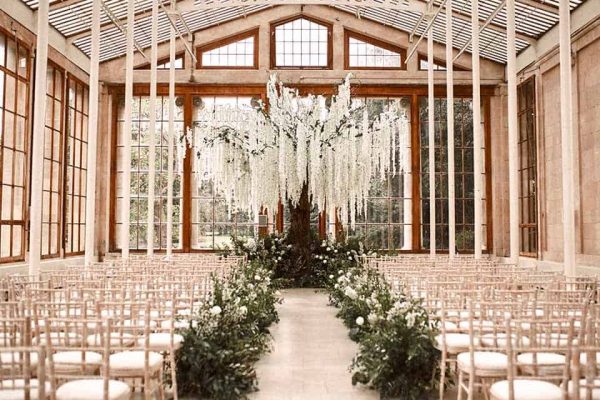
For you to be legally married in the location where the wedding is being performed, the venue must hold a license. The license is issued by the local council and will allow the venue to both perform civil ceremonies and provide legal marriage certificates on the premises.
Most wedding venues will already have the license; but if you are getting married in a less-known location, it's best to check.
Venues often have a maximum and minimum amount of guests they can accommodate on your wedding day. Because of this, we always recommend people to ask the venue how many guests they can hold, especially if you are planning a particularly large (100+ guests) or small (20- guests) celebration.
A venue's main reason(s) for having a maximum capacity of guests is usually because of the venue's limitation of space and/or the venues catering abilities.
A venue's wedding quotation is often generated based on the number of guests you will be inviting on the day. Therefore, for the venue to cover costs like staff wages and overheads, a venue may have a minimum capacity.
Quite often, venues will have a list of recommended suppliers that the venue personally endorses. They will recommend certain suppliers for a variety of reasons. Quite often, it's because they have worked with them in the past and know that they provide a good standard of service. The other reason is that the venues often have commission-based deals with certain suppliers, which generate them extra income.
Some venues are quite strict on the suppliers you use because of these reasons. If you are uncomfortable using the suppliers that the venue recommends, this is something you should talk to your venue about before booking. Don't let the venue dictate what suppliers you use.
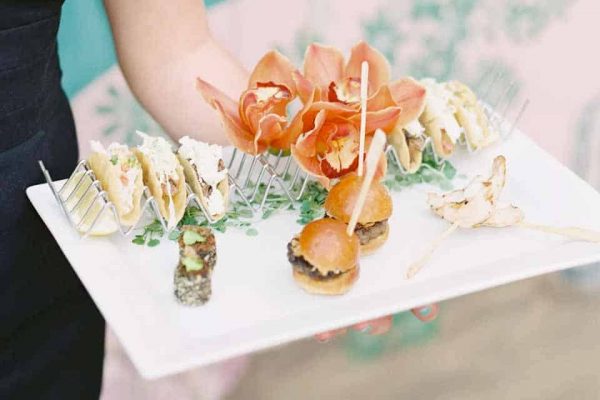
Food is often one of the most important factors of a wedding, so it is important that the venue can provide the food that not only meets the glamour of your special day, but also satisfies everyone’s tastes. Venues often offer a food-tasting session so that you can be confident in picking exactly the kind of food that you want your guests to be served.
The dining experience should also be something that you should discuss with your venue. Some venues offer multiple styles of food delivery like canapé catering, silver service and buffet. You may require different styles of catering throughout the day.
It is also wise to ask what food is available for people with specific dietary requirements, like gluten-free and lactose-free meals and snacks.
If the venue cannot supply the kind of food that you require, ask them whether it is possible to hire an external catering company to please your needs.
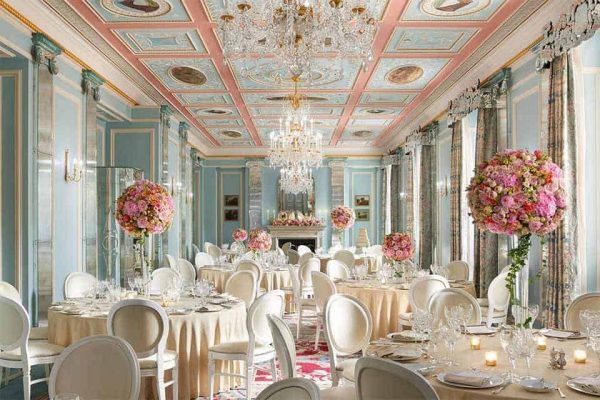
In order to start your table plan, you will want to know what seating arrangements are available. What size the tables are, even their shape can dictate how many guests can fit on one table. This ensures that all guests will be able to fit on each table with other people they would like to sit with and make sure that guests are not cramped onto each table.
This information may also help you when you are planning your table design.
Sorting out your venue can be quite a mammoth task. If you ever need to ask questions or seek advice from your venue, it is important to know who is managing your booking so that communication between you and your venue runs as smoothly as possible.
Some venues require the timings on the day to be strict, while other venues are more flexible. It's good to ask what the venue expects so that you can be prepared on the day.
You may want the timings of your day to be as faithful to your schedule as possible, or you might prefer the more relaxed approach that some venues offer.
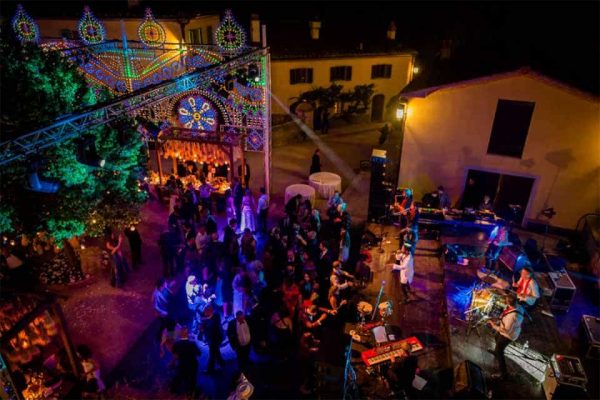
Unfortunately, all great days come to an end, and we’re sure you will want to end on the eve of the next day. But this time will be best noted on the wedding invitations when sent out, so guests will be able to arrange their travelling situations. It will also mean that you have a timescale to fit all you have planned into the day without rushing to get everything done.
It is important to hold your wedding date with any potential venues to avoid disappointment, especially if the day you require is during peak season. Some venues require you to pay your deposit or at least a holding deposit before they hold a date, while others may hold a date for you for free until they start to get other couples interested in the same date(s).
The length of time the venue can hold a date for really depends on the venue. Traditionally, high-interest venues during peak season won't offer you a guaranteed date until a deposit has been paid.
Each venue is unique, and so are its rules and restrictions. Asking your potential venue what restrictions they have will help you organise your wedding more easily and prevent any limitations on the day.
These questions could include...
From experience, we have found that inner-city venues are more likely to have restrictions based on their proximity to residential buildings.
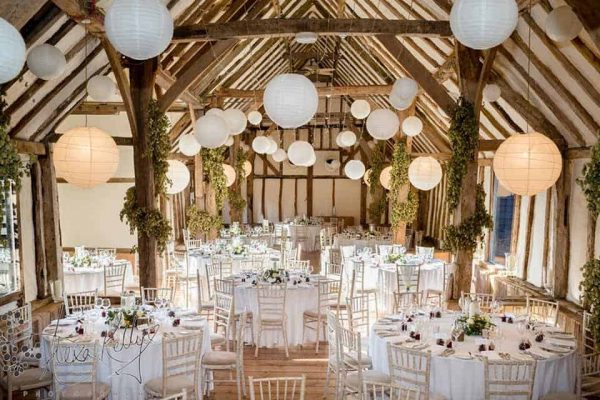
Before booking your decorators, it is good to ask what decorations the venue has available for you to hire. This can lessen the amount needed to transport to the venue and can help to make the decorators focus on the more important aspects of your wedding. It can also be important to ask when the venue is available to be decorated in advance for your decorators.
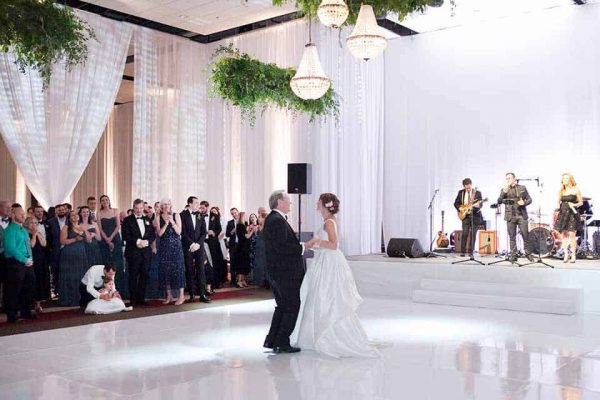
The question of whether the venue has the specific plugs that the professionals need is important and, like decorators, might need a specific window of time to set up. While you are asking, one detail that the DJ/Band will also need to know is if the venue has a sound limiter. This simply means that the musicians can make sure their sound equipment stays under the venue limit. Knowing all this before booking the musicians will streamline this step for you.
If you want to stay overnight at your chosen venue, ask whether there are rooms or alternative accommodation available. You could also ask your wedding venue if they have a special bridal suite available for you to stay and/or get ready in before the ceremony.
Some of your guests may also like to stay at the venue, especially if the celebrations are expected to go on until early morning and they have travelled far to your wedding. Checking that there is availability for guests may also be sensible.

If you want to make your guests feel special, it is crucial to have an open bar service so that your guests can get free, easy-to-access drinks at their own leisure. If the venue cannot provide an open bar service, ask whether it is possible to bring in an external drinks provider who can.
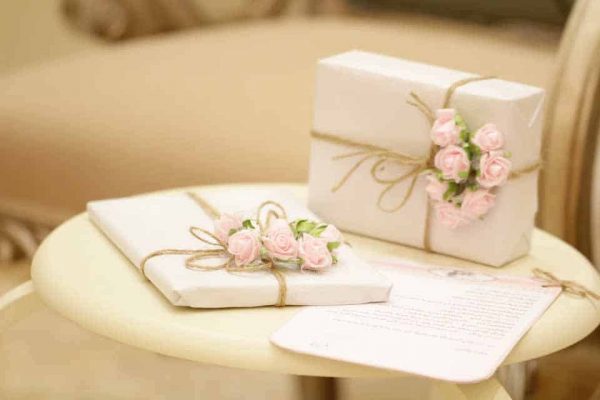
This it more of a peace-of-mind question, but it will allow you to relax on the day knowing that valuable gifts are in a secure location. The venue will most commonly assure you that their rooms have the utmost security, but this will only help ease any worries you may have on the day.
When agreeing on a final price, it is best you ask if there are any extra payments. Extra guests that may appear on the day may incur extra fees depending on the venue, and it also must be clear what cleaning arrangements are in order after the wedding. Cake-cutting fees are the most common unexpected charge couples say they receive.
When paying for your wedding, you want to make sure that if any extra fees are required, you can cover them with your current finances and your budget before agreeing on this final price.
Often a venue will give you a margin of time before your deposit is sealed and it cannot be refunded. Depending on how large this deposit is, knowing when this deadline is will help to make sure your decision is final for the venue when this date approaches.
Having a financial roadmap to pay for your wedding is always the smartest way to plan ahead. Most venues offer flexibility with their payments and can also offer payment in installations if requested. If you ever feel you could struggle to make the final payment by the specific date, the venue will always try to offer their sincerest help to make payments more manageable.
Other questions you may wish to ask the venue which we didn't mention could be...
Get wedding inspiration sent straight to your inbox by subscribing to our newsletter.
We never share your information with third parties.
View our ‘Privacy Policy’
COPYRIGHT © 2021 BRITAINS WEDDING GUIDE
Subscribe to our newsletter and get regular updates on what’s happening at Britain’s Wedding Guide.
We never share your information with third parties.
View our ‘Privacy Policy’